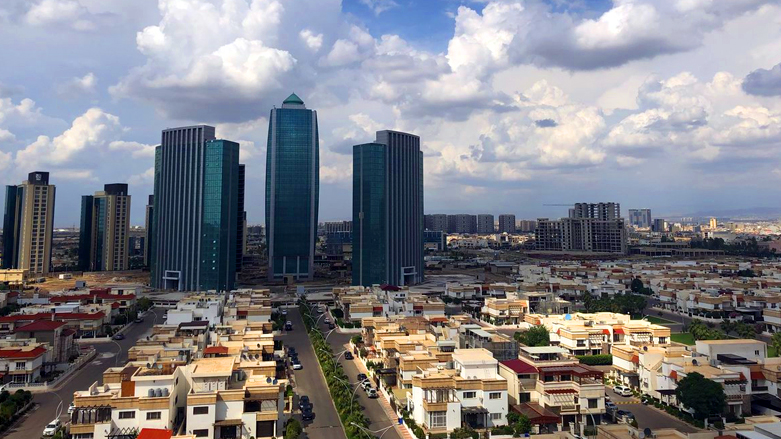Second province in Kurdistan calls for greater autonomy from KRG

ERBIL (Kurdistan 24) – As the economic fallout from the global coronavirus pandemic and measures to contain it loom, members of the provincial government of Sulaimani revived calls for greater autonomy from the Kurdistan Regional Government (KRG), just one day after Erbil's top official voiced a similar opinion.
On Monday, Erbil Governor Firsat Sofi stated his support for provinces to obtain increased administrative authority but added that such a move must be free of "partisan conflicts." Sofi's statement came in response to a question about the issue at an Erbil press conference in which he addressed the latest developments on the coronavirus, formally referred to as COVID-19.
The highly-contagious infection's impact has crippled governments worldwide and floored oil prices—the primary source of income for Iraq and Kurdistan—as global demand plummeted. Although export levels have remained mostly steady in Iraq overall, revenue in April dropped to half of what was earned in March.
The precariousness of the autonomous region's economy was further exacerbated by the federal Iraqi government's decision last month to suspend payments of the Kurdistan Region's share of the national budget amid disputes over oil exports. Erbil challenged Baghdad's move in a ten-point letter, calling it "a violation of the law."
A KRG delegation headed by Deputy Prime Minister Qubad Talabani returned to the national capital on Tuesday as part of efforts to resolve long-standing issues between the central and regional governments.
Related Article: KRG delegation in Baghdad seeks 'definitive solution' to budget disputes
On Sunday, the KRG Board of Investment announced a major investment scheme with the aim of diversifying the region's sources of revenue and reducing reliance on proceeds from hydrocarbons sales, as well as creating hundreds of thousands of local jobs.
Political parties based in Sulaimani have said on multiple occasions that they would prefer for their province to have more control over income from natural resources and the national budget earmarked for it. The proponents of such a move claim Sulaimani would be able to allocate its resources more efficiently.
To that end, the Sulaimani Provincial Council formed a nine-member committee on Thursday that was slated to begin the process of drafting relevant legislation.
"Administrative decentralization and delegating powers to the provinces and administrative units is one of the objectives of this [KRG] cabinet," Sofi affirmed during Tuesday's press briefing, noting that such plans had been part of deals made to form a government among the region's leading parties in 2019.
Related Article: Kurdistan leading party's delegation meets runner-ups in Sulaimani
"We in Erbil [province] more than any others need" for such plans to come to fruition, Sofi added. He specified that he supported intentions by governors and provincial councils across the autonomous region to draft an amendment to the "Law No. 03, 2009" of the Kurdistan Region Parliament, which outlined provincials powers.
The bill would then be submitted to the Council of Ministers and then to lawmakers for review and an eventual vote.
Sofi noted, however, that this issue must be clear of conflicts between the top political parties of the Kurdistan Region, referring to recently resurfaced tensions between the leading Kurdistan Democratic Party (KDP) and the Patriotic Union of Kurdistan (PUK). The two sides formed a unity government last year, but reoccurring friction has marred their working relationship since the mid-2000s.
During a KRG cabinet meeting chaired by Prime Minister Masrour Barzani on Saturday, cabinet members raised the topic of "calls for greater decentralisation" and affirmed that it "is part of the government stated agenda and must emerge under the supervision and guidance of the Council of Ministers."
According to a statement released after the meeting, the Council of Ministers "reiterated support for the unity of the Kurdistan Region and opposed any effort to undermine it."
Editing by John J. Catherine
